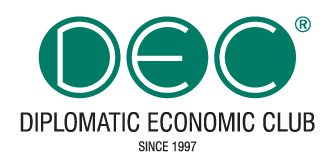The euro-goal will be one of the most important priorities of the next Hungary government
On the eve of the round table dedicated to the banking crisis lessons in Baltic states BC met with Janos Rekasi, DEC vice-president, Counsellor, Embassy of Hungary in Estonia and Latvia. The conversation was about the lessons learnt by Hungary after the financial crisis, as both Latvia and Hungary had to turn for intenational organization assistance.
The article is prepared for the Round Table „Baltic States’ bank sector: lessons from the modern crisis“, organized by the Baltic International Academy, Latvian Employers Association and International Web-Magazine „The Baltic Course“ on 24st of February in Riga, Latvia.
BC: What happened in Hungary when the international financial crisis broke out?
János Rékasi: In October 29, 2008 the IMF, the European Union and the World Bank agreed to a 25,1 billion rescue package for Hungary to help it cope with the global financial crisis. From part of IMF the sum was $15.7 billion loan deal, while the European Union stood ready with an additional $8.1 billion in financing and the World Bank another $1.3 billion.
«The Hungarian authorities have developed a comprehensive policy package that will bolster the economy’s near-term stability and improve its long-term growth potential,» IMF Managing Director Dominique Strauss-Kahn said in a statement. And he followed: «At the same time it is designed to restore investor confidence and alleviate the stress experienced in recent weeks in the Hungarian financial markets.» He noted „Important measures in the fiscal area will reduce government- financing needs and ensure longer-term debt sustainability“, and the whole program will improve Hungary’s fiscal balance and strengthen its financial sector. «Specifically, the package includes measures to maintain adequate domestic and foreign currency liquidity, as well as strong levels of capital, for the banking system,» he said.
BC: Why Hungary was so much hit by the international crisis?
R.J.: Similar to other developed countries, banks in Hungary faced liquidity problems after the outbreak of the crisis. These included general liquidity enhancing measures such as the reduction of the reserve ratio (from 5% to the 2% applied by the ECB), the expansion of the range of eligible collateral, as well as purchase of government bonds in the secondary market. Hungary was extremely hit by the financial crisis because its banking system was heavily exposed to foreign financing at a time when investors were pulling back from developing economies worldwide. Other countries were facing similar problems and why Hungary was the first country who turned to IMF-loan?
The crisis found Hungary in a very vulnerable condition because:
1. Hungary has a large debt -- the gross external debt of the Hungarian state and companies amounted to 89.9 billion euros or 93.8 percent of gross domestic product (GDP) in the second quarter of 2008, while net debt was external 46.3 percent of GDP.
2. Hungary had an excessively loose fiscal policy between 2001 and 2006 and this boosted the budget deficit to above 9 percent of GDP. Following a mini financial crisis (and run on the forint) in the summer of 2006 the Hungarian government adopted an «adjustment programme», whereby tough measures were introduced by the government to cut the deficit, which has been falling and is now projected to reach 3.4 percent in the last year.
3. Hungary were running a serious current account deficit for years, and although it has been improving, still it was 7.1 percent of GDP in 2008.
4. In similar fashion to Spain, for example, Hungary needed to refinance its existing household and corporate debt by issuing both forint-denominated and foreign currency bonds, and it is this rollover which became suddenly much more difficult due to the global credit crunch.
5. Hungary had the twin deficits problem and one of the main problems Hungary was facing in the autumn 2008 that if foreign currency lending continued to be discontinued in Hungary on a «sudden stop» basis, then this would mean that domestic economic activity would slow sharply and capital inflows would be considerably reduced which was bound to cause one hell of a problem since at that time these capital inflow amount to about ?3-?4bn a year, and were close to providing the cover needed to fund the ongoing current account gap.
6. The relevant part of household and corporate dept has been in foreign currencies (euro, Swiss franc, yen) and the loan/deposit proportion in foreign currencies were high, above 100% and only the loan/deposit proportion in forint were about 50%.
7. As suddenly the international community recognized how vulnerable is the Hungarian economy, and as the liquidity dropped radically the euro/forint course started to augment rapidly. In a short time the euro had 20-25% more value threatening the debtors but boosting the export.
Full text at the website of The Baltic Course — The euro-goal will be one of the most important priorities of the next Hungary government










